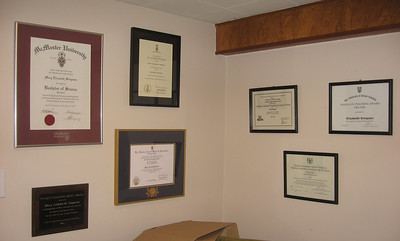A new report issued last month by the Lumina Foundation shows that while the number of adults in the United States who have a post-secondary credential is rising, the number of quality post-secondary certificates that produce a significant wage increase (> 10%) has declined. Researchers are not sure why certificate programs are losing their ability to affect worker salaries.
Thirty-five states registered increases in the number of adults with post-secondary credentials, but countering that, thirty states, the District of Columbia, and Puerto Rico saw declines in the economic power of post-secondary certificates. Some researchers believe that the strong economy has made it more difficult for certificate programs to meet the foundation’s 10%+ bar. Salaries among unskilled labor have risen substantially as employers struggle to find workers to fill their open positions.
One of the Lumina Foundation’s goals is to help increase the educational attainment of adults in the United States. Currently, slightly more than 54% of adults have some type of post-secondary credential that can positively impact a worker’s salary. The Lumina Foundation is working to increase that attainment rate to 60%.
Only three states and the District of Columbia currently have educational attainment rates higher than 60%. Those states are Colorado, Massachusetts, Minnesota, and Utah. The District of Columbia has the highest educational attainment rate in the United States at 75.4%. In case you’re wondering, Michigan ranks dead last among all Great Lakes states for post-secondary educational attainment. The fact that certificates are showing a worse return will only hurt places like Michigan, which already struggles with post-secondary educational attainment. Currently, 51.1 of adults have a post-secondary credential of some kind.
Certificates may be vulnerable to good economy
Regardless of why the economic potential of a certificate is falling, the data highlight the dangers of WCC’s over-reliance on certificate production. The lack of economic value means fewer students will benefit from earning a certificate. When certificate programs can’t move the needle in a positive direction, it lessens the return on investment that the Washtenaw County taxpayers have made in WCC.
It also speaks to whether WCC’s certificate strategy operates in the best interests of the residents of Washtenaw County. We pay a significant sum of money every year in property taxes. Our return on this investment has been a decreasing number of degree programs and an increase in certificate programs, many of which fall into the “minimal value” category. It certainly doesn’t offer a ringing endorsement of WCC’s decision to double down on certificates. How much have the Trustees cost the taxpayers of Washtenaw County by approving these post-secondary duds? What was the economic return on our tax dollars that we sacrificed to enable WCC’s administration to continue down this path?
Photo Credit: Beth, via Flickr























